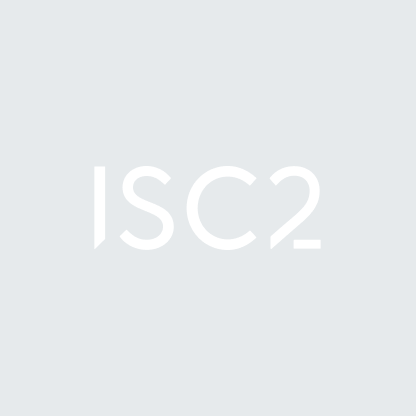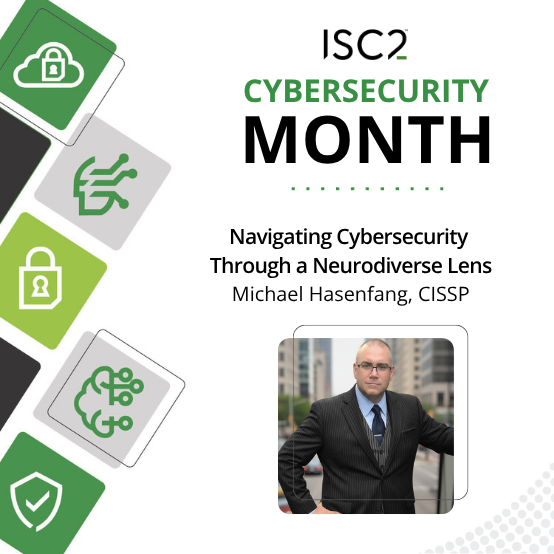Around the world, April is recognized as Autism Acceptance Month, a time to promote awareness and acceptance of Autism Spectrum Disorder (ASD). A developmental disorder, ASD impacts how people communicate, learn, behave, and interact with others. At ISC2, we celebrate April as Autism and Neurodiversity Acceptance Month to recognize all those who are neurodiverse, a term used to describe autism and other alternative thinking styles such as Dyslexia, DCD (Dyspraxia), Dyscalculia, and ADHD.
Neurodivergent people often have difficulty securing employment, not because they are unqualified but because they find traditional working environments challenging to navigate. In the U.S., a mere 15% of autistic adults are employed. In comparison, in the U.K., autistic adults make up only 16% of the full-time workforce. However, the shift to remote work and the adoption of neurodivergent hiring initiatives in recent years is creating new opportunities for neurodivergent individuals to gain employment.
Neurodivergence in the Cybersecurity Field
The cybersecurity field has a documented shortage of talent, with a worldwide gap of over 3.4 million cybersecurity workers. To fill this void, companies are changing their recruiting and hiring strategies to reach a broader selection of highly skilled applicants, including the neurodiverse. Individuals who are neurodivergent bring unique skills and perspectives to the field that can help organizations stay ahead of emerging threats. Autistic adults for example often have exceptional memory and attention to detail, a valuable asset when detecting patterns and anomalies in data. Similarly, those with ADHD may thrive in high-pressure situations and be comfortable quickly switching between tasks, which makes them more agile when responding to cyber attacks.
Companies have realized that neurodivergent workers can be a huge benefit in the field, causing changes in approaches to hiring neurodivergent applicants. Alternative interview formats are becoming more common, such as offering virtual interviews or assessing applicants based on abilities rather than social skills. In 2015, Microsoft launched its Neurodiversity Hiring Program, which provides training and support to talented neurodivergent candidates to improve their success and career growth. SAP and HP have also launched similar initiatives to tap into neurodiverse talent, like SAP’s Autism at Work Program, which assists candidates on the autism spectrum during the hiring process and provides resources to ensure their success once they are on the job.
How Remote Work is Leveling the Playing Field
Traditional working environments are sometimes difficult for neurodivergent employees to navigate due to social norms, narrow expectations of communication styles, and stifling working conditions. Remote work presents a welcome alternative that allows for a more flexible and accommodating environment where employees can choose what works best for them. Remote work can reduce the sensory overload and distractions that are present in traditional office settings, which can be particularly challenging for individuals with ADHD or autism.
Neurodivergent employees who struggle with workplace social norms can benefit from communication that is more structured and asynchronous, which is more accessible while working from home. Remote work also removes many of the social cues and distractions that can be present in traditional workplaces, allowing employees to better focus on their work and perform to the best of their abilities.
However, it's important to note that the neurodiverse community is far from monolithic and remote work is not a one-size-fits-all solution for all neurodivergent workers. Some individuals may still prefer or require the structure and routine of a traditional office environment, while others may benefit from a hybrid approach that combines the flexibility of remote work with the social interaction of an office setting.
Ultimately, the key is to provide a range of options and accommodations that allow neurodivergent employees to thrive in whatever environment is most comfortable for them. The cybersecurity field has much to gain from embracing neurodiversity, and adapting to different thinking styles and working preferences is a great first step to ushering in more diverse talent.


